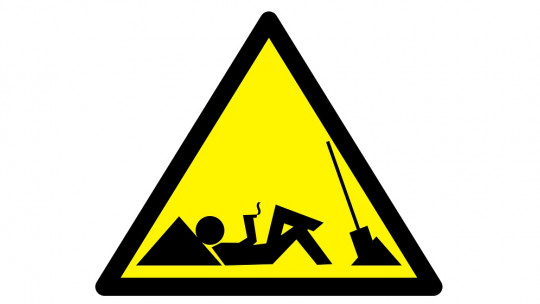Productivity is not about completing tasks non-stop or working 24/7; In fact, trying to do something like this generates great physical and psychological exhaustion and is unsustainable in the medium and long term.
In this article we explain everything you need to know about mindful productivity and how it can help you reduce stress
What is conscious productivity?
Over the last decade, the idea of being more productive people has become popular around the world. However… What does it really mean to be a productive person? How do attempts to boost productivity impact health?
Thanks to productivity, progress is made towards achieving new achievements (personal and professional); Now, some “gurus” go so far as to invite people to sleep less, eat faster, work more and take fewer breaks, all in order to be more productive people.
Over time, different studies have confirmed that This traditional productivity style can increase burnout levels in people and teams, create sleeping problems and reduce quality of life
The most important resource for the need for productivity
Did you come to think of time as the most important resource? It is normal for it to be this way; Due to today’s culture we come to understand time as the indispensable tool to achieve goals and objectives, but… Have you asked yourself if you have real control over time? Or can you pause it or change it?
Time is a resource that helps advance the different calendars that exist in the world; However, there is a resource that is even more important for your productivity and that is… your energy You can also know it as the mood or motivation you have to do things. It works in a very similar way to the batteries in your phone or computer.
When using all the energy, you need to recharge it. On the other hand, if you use your battery without disconnecting it from the power, it may affect the overall operation. Something very similar happens with your energy.
If you are looking to complete the greatest number of tasks without taking a break or rest, this can increase the chances of increased stress and health problems On the other hand, if you don’t use your energy, it can impact your emotional health. A balance is needed between the four aspects of your energy: physical, mental, emotional and spiritual.
A new definition of productivity
Traditional productivity can be defined as the result that is achieved in a given time Here time is the protagonist, although we know that we do not have complete control over it.
By placing energy as the most important resource, to move towards conscious productivity we can define productivity as the conscious decision to use one’s energy for a present purpose that is aligned with one’s values, goals, and life purposes

Daily habits to move towards conscious productivity
Moving towards conscious productivity is a process; It takes time to adapt to a new work style. However, the most important thing is that you can start with small daily habits in order to increase your productivity without negatively affecting your health, your well-being and your peace of mind
1. Rest intervals
During the workday, it is key to have frequent breaks, of short or medium duration. A pause refers to any action that helps you change your posture and focus for a few minutes.
It shouldn’t be a long time, starting with breaks of 5 minutes every 45 minutes will make a difference.
A useful tool in this regard is the pomodoro technique It consists of dedicating yourself to conscious work for 25 minutes straight with active breaks of 5 minutes.
To make the most of your rest intervals, we also recommend learning to meditate. It is a very simple practice to do, and the results on an emotional, physical and mental level are very profound.
2. Improve rest schedules
Having a good rest is the basis for increasing well-being Sacrificing time to sleep to try to increase productivity is counterproductive; in the long term it can increase the risk of disease.
To make progress in this regard, create a bedtime routine. An hour before your average rest time, create a space with low lighting, relaxing smells, and sounds that help you get a deep rest.
- You may be interested: “Types of motivation: the 8 motivational sources”
3. Practice meditation and exercise mindfulness
Meditation is the practice of bringing attention to the breath ; Seek to connect in the present.
Different studies show that meditating regularly provides several benefits, such as reducing stress.
4. Exercise and movement
Exercise helps stimulate the production of hormones such as dopamine, serotonin, endorphin or enkephalin , which are related to the feeling of happiness and well-being. Practicing exercise for a few minutes a day will help your productivity and motivation increase.
You don’t need much time to get started, start with 15 minutes of walking every day. No distractions.
If you don’t have much time to exercise, it is key that you can take active breaks (as we mentioned above). Maintaining the same posture or frequent video calls can cause mental fatigue that can be partially compensated with physical activity.
5. Hydration and good nutrition
The body is 70% water. Drinking water frequently during the day and having a balanced diet that is applied calmly on a daily basis is a fundamental pillar to increase well-being and conscious productivity It is recommended that you drink a glass of water during each active break.
Conclusions
Productivity also changes over time and this new era has as its central axis the vital energy of each person.
Furthermore, energy is the most valuable resource in the productivity of the modern world. The aim is to achieve a total commitment to the present.
On the other hand, rest is a fundamental pillar, not only for productivity but also for well-being.
Remember that productivity does not equal stress With different habits it can be reduced on a daily basis.









